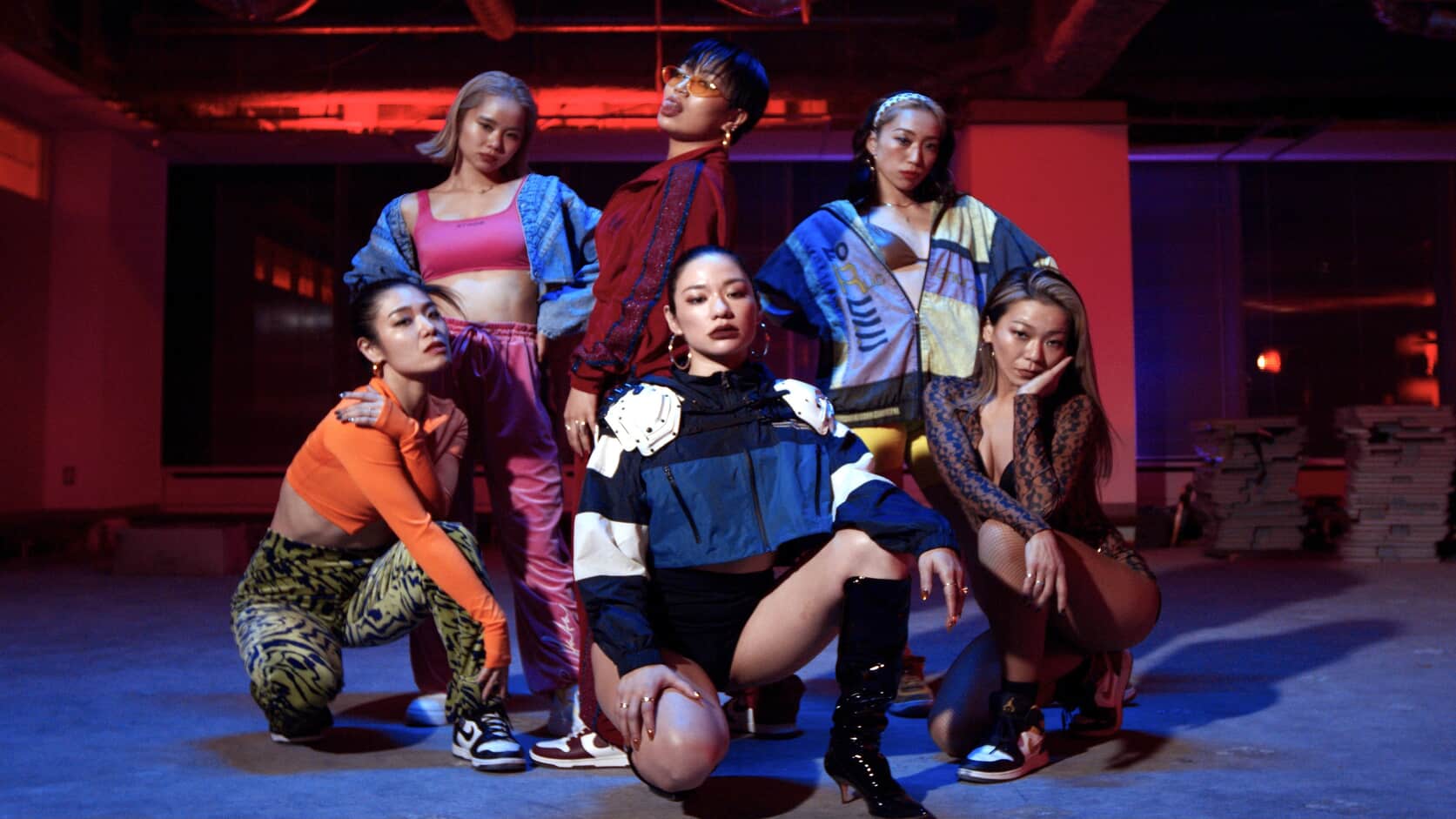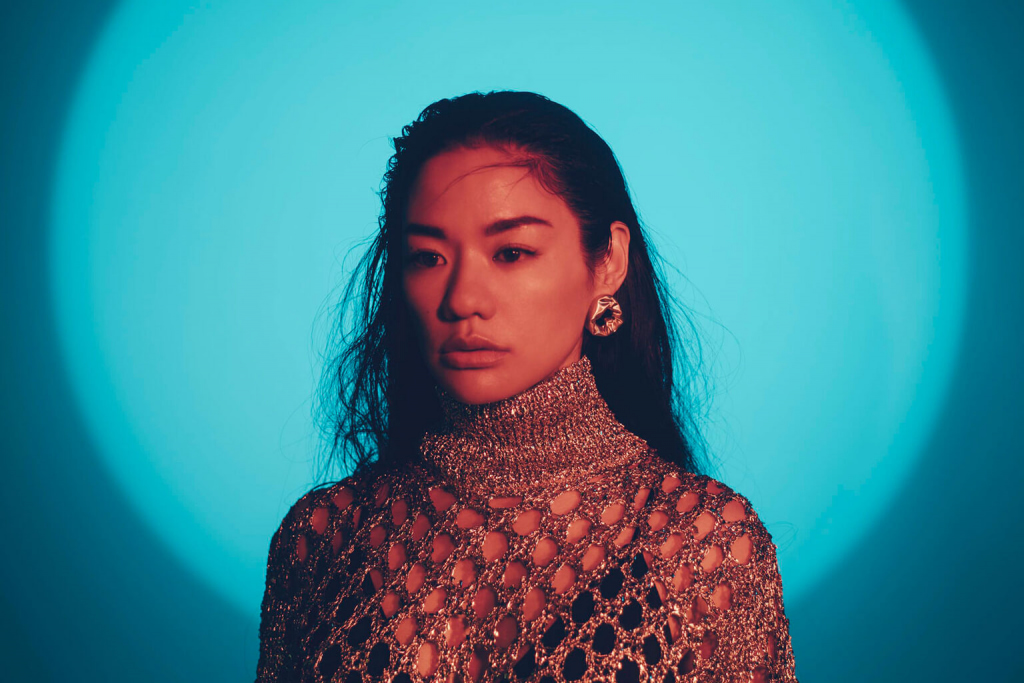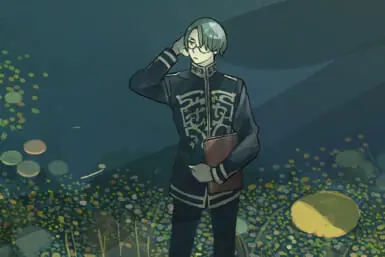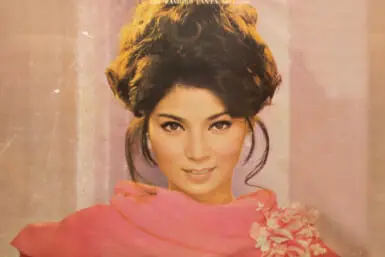One of the brightest and most forthright musicians in Japan, Akiko Urasaki isn’t afraid to tell it like it is. And that’s exactly what the Okinawan rapper does on her new album Queendom. Wanting to hear more about the record, TW recently sat down with the artist, who goes by the stage name Awich, meaning “Asian wish child.”
During our hour-long interview, we also spoke about how she overcame the tragic murder of her husband, her passion for the Black Lives Matter movement and her love for Tupac Shakur. We started, though, by asking about her childhood and the first time she started writing.
“I began with poetry when I was nine,” recalls Awich. “As a child, I often couldn’t sleep. To get through the night I’d write about things like finding love and wanting to leave the island. Just a kid’s fantasies. Then, at junior high school I started penning lyrics. That’s when I discovered rap.”
Tupac’s Influence
Initially into J-Pop artists such as Namie Amuro and Speed, Awich became obsessed with rap and hip hop after visiting a record shop with her cousin in her early-teens. Closing her eyes, she randomly picked out a CD that happened to be All Eyez on Me, the last album to be released by Tupac Shakur before his death in 1996. It would change her life.
“It was just so different to anything I’d listened to before,” she says. “I wanted to know more about Tupac and ended up studying his whole life. I could quote every word of his interviews. He had a real charisma and wanted to give back to his community. That inspired me. I dreamed of doing something for Okinawa and started looking more into my own roots.”
Awich was soon telling friends she was a rapper. At 14 she appeared on Orion Beat, an album showcasing various artists. Five years later, she released her debut EP Inner Research. Shortly after that, she headed to the States to study for a degree in entrepreneurship and marketing.
“Growing up in Okinawa, I was exposed to American culture a lot because of the military bases,” remembers Awich. “I joined a demo against one of them and like most people, felt conflicted. On the one hand there was this anti-military feeling, yet on the other many of us admired the States, especially kids. Then when I got older, I wanted to move to a bigger place and there was only one choice.”

Overcoming A Tragic Loss
While studying, Awich released her first full album Asian Wish Child. She also tied the knot to a New York native. A member of the black nationalist movement, the Five-Percent Nation (also known as the Five Percenters), she says he taught her a lot, particularly regarding the importance of self-knowledge. Tragically, just a few years into their marriage, he was fatally shot by a man who held a grudge over a financial dispute.
“I returned to Okinawa and every day was like a rollercoaster,” says Awich. “One day I would see it as a test making me a better person, the next I’d want to kill myself. I just wrote as much as I could, like I did when I was a child. I tried to tell myself ‘nankurunaisa,’ an Okinawan phrase meaning ‘everything’s gonna be alright.’ Writing down my fears and what made me angry, I gained a deeper understanding of what that really meant.
“My daughter was so strong,” adds Awich. “Out of the blue, she said ‘I see daddy.’ I asked where and she replied ‘everywhere.’ When we scattered his ashes, I told her he’d gone into everything that surrounds us. At three, she understood that. She really helped me. The words that really got me out of my dark place, though, came from my father. He asked how long I was going to be depressed. I’d lost my husband and felt I was entitled to be like that, but he pointed out that all Okinawans had lost people close to them, including him and mom. I wasn’t special.”
Lifting herself up, Awich launched Cipher City, a production company aimed at utilizing Okinawa’s local resources, products and culture. In 2017, she won an award for Aimer, a short film she wrote and directed. Music, though, remained her true passion. Through hip hop label Yentown, she released two studio albums: 8 and Peacock in 2018 and 2020. They were followed by Partition, her first EP via Universal Music. All three received critical acclaim. However, with her latest release, Awich believes she’s reaching a new level.
Queendom
“With Queendom, I’m showing my determination to be at the very top,” says Awich. “Before I knew I had the potential to be big and famous, but I didn’t have the guts to be at the center of everything. Now, I’m aiming to be the queen of Japan. Period. With that comes responsibility. It’s about owning your own words and not being afraid to be bashed for them.”
Standout songs include the title track “Queendom,” “Gila Gila,” ”Doreni Shiyokana” (I Got Options) and the sexually explicit “Kuchi ni Dashite” (Put it in the Mouth). The uploaded videos on YouTube feature English translations written by Awich.
“I was initially scared to release ‘Kuchi ni Dashite,'” admits Awich. “I talk about sex frankly and I thought people might attack me for that. Then I played it to hip hop group Bad Hop and they pushed me to get it out there. It goes back to what I said earlier about being a queen and taking risks. I’m not just introducing a new song, but a new way of thinking. It’s about opening up a conversation.
“‘Queendom’ is the story of my whole life in one song,” continues Awich. “Then on ‘Gila Gila’ (meaning bling bling), I’m telling people to look at me because I’m shining. It’s having that confidence to back yourself. With ‘Doreni Shiyokana’, I want to send out a message to those listening that you have options. As women, sometimes it feels like we must behave in a certain way. We should get married, have kids and never talk about sex. It doesn’t need to be like that. You have the right to choose.”

Spreading Her Message
Awich has chosen her own path and things seem to be going well. Following the release of Queendom in March, she headlined the prestigious Nippon Budokan arena. Describing it as “a special place,” she says, it’s long been a dream of hers to perform there, but she sees it as just the beginning. The goal is to hold even bigger shows in the future.
In addition to her music, Awich recently collaborated with designers Verdy and BlackEyePatch on a hoodie and T-shirt based around street culture. She also appeared in the movie 1446: An Eternal Minute as a singer who lost her son in the 2011 Tohoku earthquake and tsunami. With her fame growing, the Okinawa-native wants to use her platform to spread her message about various issues, including Black Lives Matter.
“My black husband was killed and I’m raising a black daughter so I can speak about this from experience,” says Awich. “I teach my daughter to be a leader not a victim. Be the change you want to see. Limiting yourself because of race or gender is meaningless. You can be whoever you want to be. That’s what I tell myself and anyone listening.”









